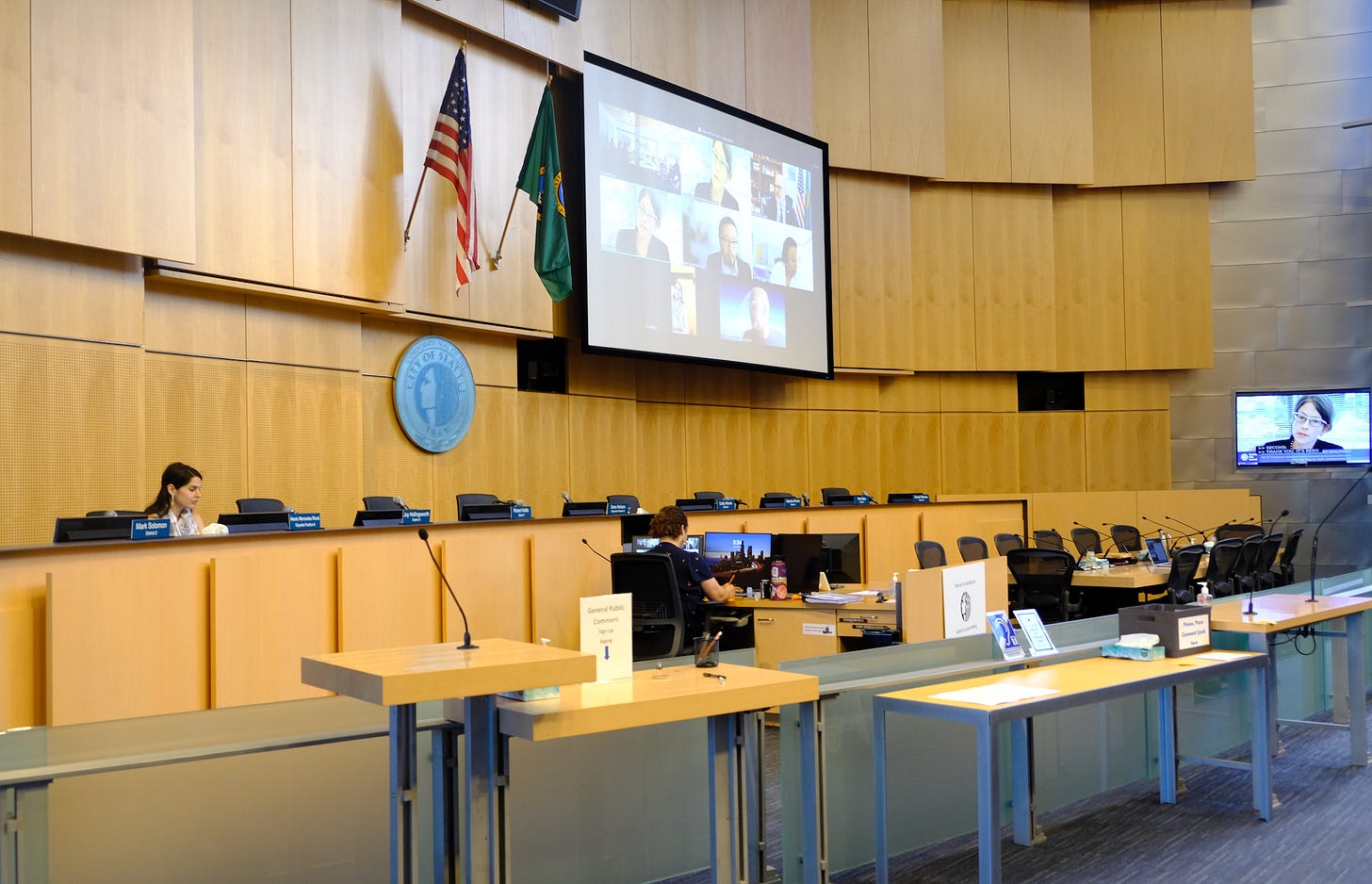This Week on PubliCola: May 24, 2025
Tent City 4 Persists, SPD Launches Another Expensive Ad Campaign, Council Votes to Lower Its Own Ethics Standards, and More

By Erica C. Barnett
Hey PubliCola readers! I’ve been out of town, so posting this week was a little lighter than usual. Here’s what you may have missed:
Saturday, May 17
Tent City 4 To Move as Planned—For Now
Earlier this month, after a last-minute email complaint campaign, city officials suddenly decided that Tent City 4 could no longer move to a new location at the Lake City Community Center, setting off a chaotic week of negotiations. Eventually, the city allowed the self-managed community to move to the long-planned site, but only on a temporary basis until a more “appropriate” location can be found.
Thursday, May 22
David Meinert Joins Burien’s Lawsuit to Kill Voter-Approved Minimum Wage
Meinert, who once owned bars and clubs around Seattle, joined a lawsuit filed by the city of Burien to overturn a voter-approved minimum wage, arguing that it conflicts with a competing measure passed by the Burien City Council while the campaign for the voter initiative was going on. The two wages, Meinert argues, make it unclear how much he’s supposed to pay staff at his restaurant in Burien.
SPD Hires Yet Another Recruiting Firm for New Ad Push as Part of Recent Spending Spree
Despite a budget shortfall and a temporary freeze on hiring for civilian positions, the Seattle Police Department is sinking up to $5.8 million into yet another recruitment ad campaign—this one by a Phoenix-based police recruitment marketing firm. Hiring is up at SPD after the city increased cops’ starting salaries to $103,000 last year.
Friday, May 23
Council Committee Approves Bill Lowering Council’s Ethical Standards
A city council committee voted to advance legislation that will revise the city’s ethics code to allow council members to vote in their own financial interest, eliminating a law that requires council members to recuse themselves when they have a clear financial conflict of interest. The higher ethical standard has persisted for more than 40 years, including 10 under district elections—undermining council members’ argument that district council members’ constituents would be newly and uniquely disenfranchised if their representatives couldn’t vote even when they have financial conflicts.




